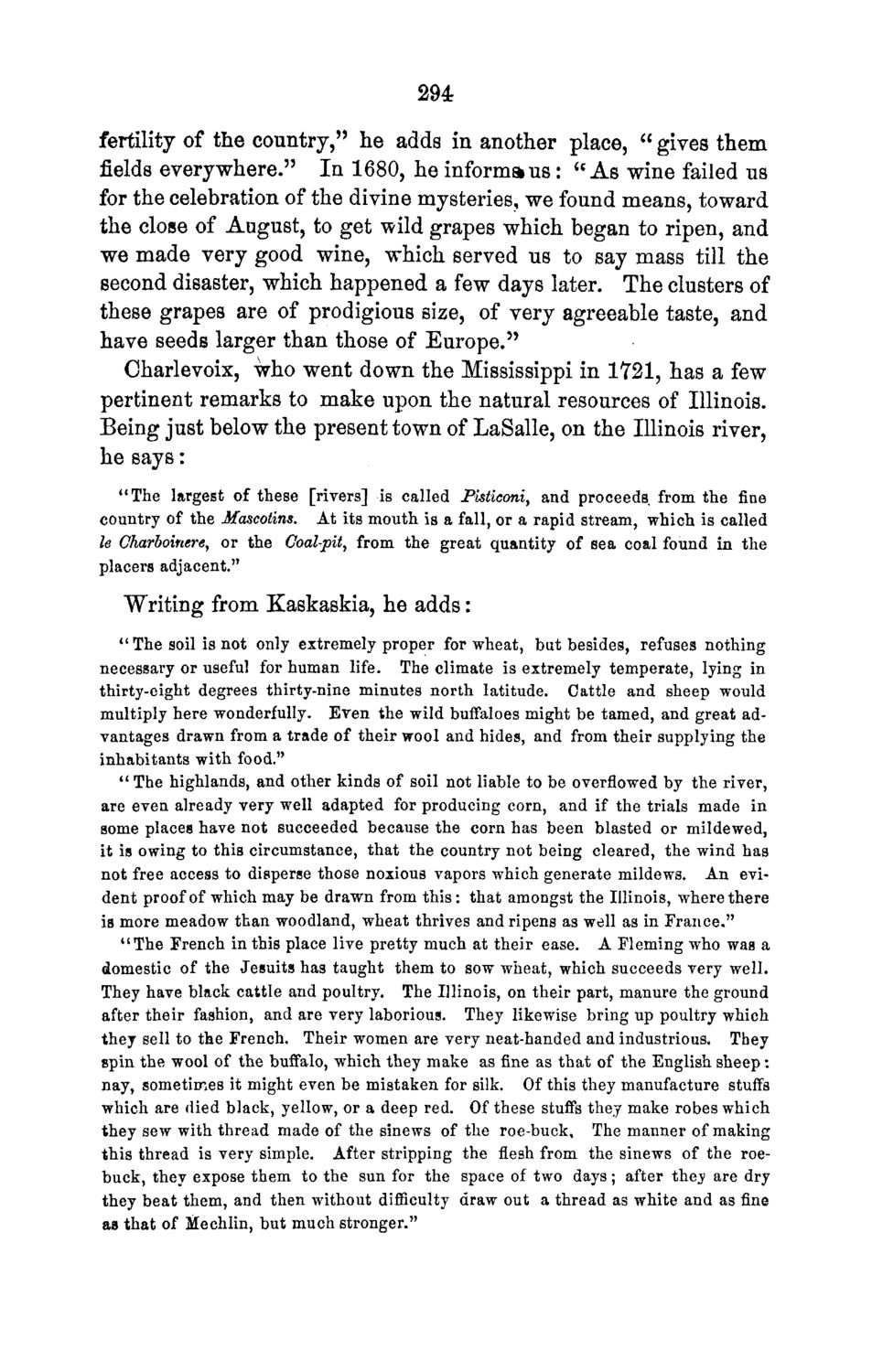| |
| |
Caption: Board of Trustees Minutes - 1868
This is a reduced-resolution page image for fast online browsing.

EXTRACTED TEXT FROM PAGE:
294: fertility of the country,'5 he adds in another place, " gives them fields everywhere." In 1680, he informs* us: u As wine failed us for the celebration of the divine mysteries, we found means, toward the close of August, to get wild grapes which began to ripen, and we made very good wine, which served us to say mass till the second disaster, which happened a few days later. The clusters of these grapes are of prodigious size, of very agreeable taste, and have seeds larger than those of Europe." Charlevoix, who went down the Mississippi in 1721, has a few pertinent remarks to make upon the natural resources of Illinois. Being just below the present town of LaSalle, on the Illinois river, he says: "The largest of these [rivers] is called Pisticoni, and proceeds from the fine country of the Mascotins. At its mouth is a fall, or a rapid stream, which is called le Charboinerey or the Coal-pit, from the great quantity of sea coal found in the placers adjacent." Writing from Kaskaskia, he adds: "The soil is not only extremely proper for wheat, but besides, refuses nothing necessary or useful for human life. The climate is extremely temperate, lying in thirty-eight degrees thirty-nine minutes north latitude. Cattle and sheep would multiply here wonderfully. Even the wild buffaloes might be tamed, and great advantages drawn from a trade of their wool and hides, and from their supplying the inhabitants with food." " T h e highlands, and other kinds of soil not liable to be overflowed by the river, are even already very well adapted for producing corn, and if the trials made in some places have not succeeded because the corn has been blasted or mildewed, it is owing to this circumstance, that the country not being cleared, the wind has not free access to disperse those noxious vapors which generate mildews. An evident proof of which may be drawn from this: that amongst the Illinois, where there is more meadow than woodland, wheat thrives and ripens as well as in France." "The French in this place live pretty much at their ease. A Fleming who was a domestic of the Jesuits has taught them to sow wheat, which succeeds very well. They have black cattle and poultry. The Illinois, on their part, manure the ground after their fashion, and are very laborious. They likewise bring up poultry which they sell to the French. Their women are very neat-handed and industrious. They spin the wool of the buffalo, which they make as fine as that of the English sheep: nay, sometimes it might even be mistaken for silk. Of this they manufacture stuffs which are died black, yellow, or a deep red. Of these stuffs they make robes which they sew with thread made of the sinews of the roe-buck. The manner of making this thread is very simple. After stripping the flesh from the sinews of the roebuck, they expose them to the sun for the space of two days; after they are dry they beat them, and then without difficulty draw out a thread as white and as fine as that of Mechlin, but much stronger."
| |